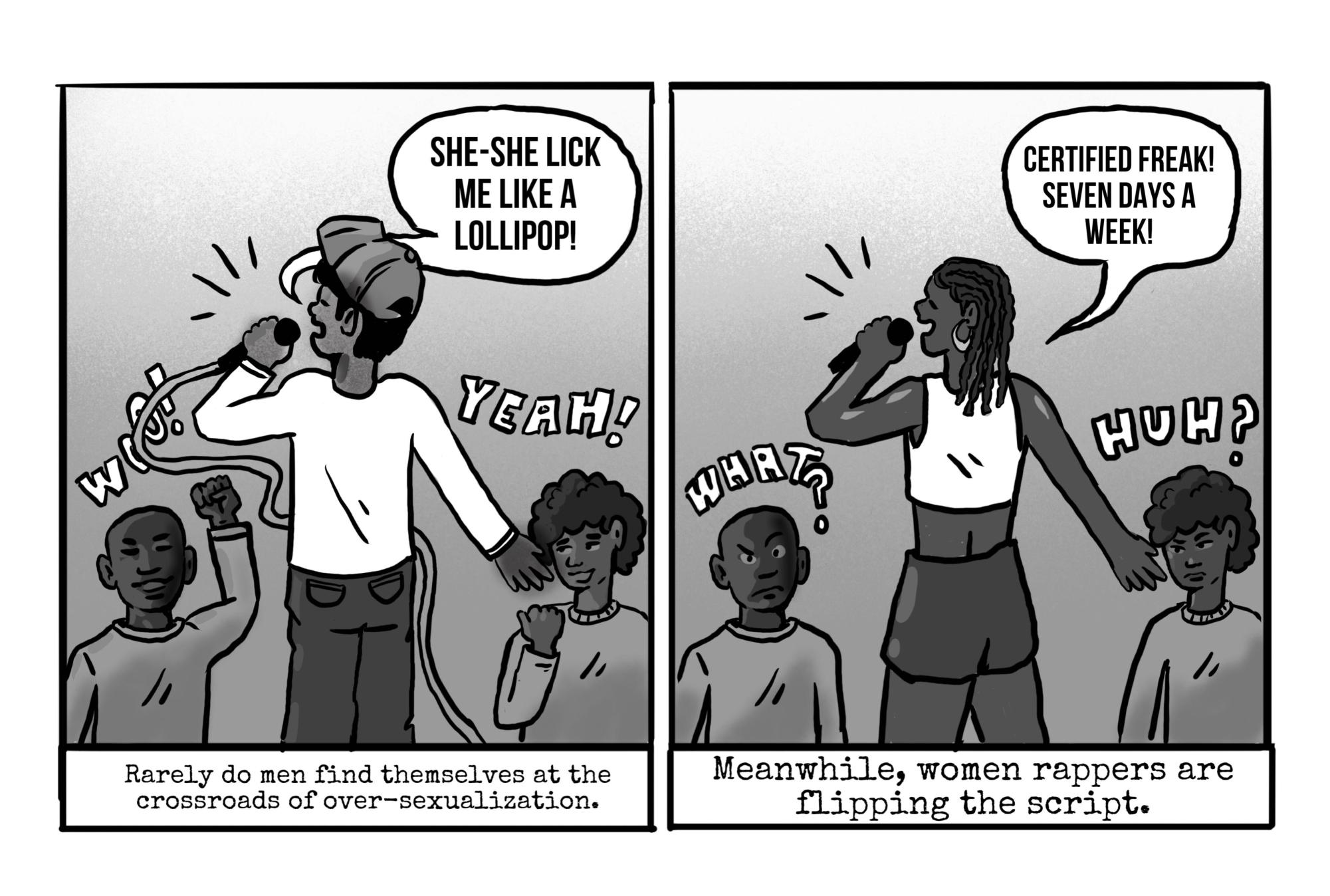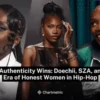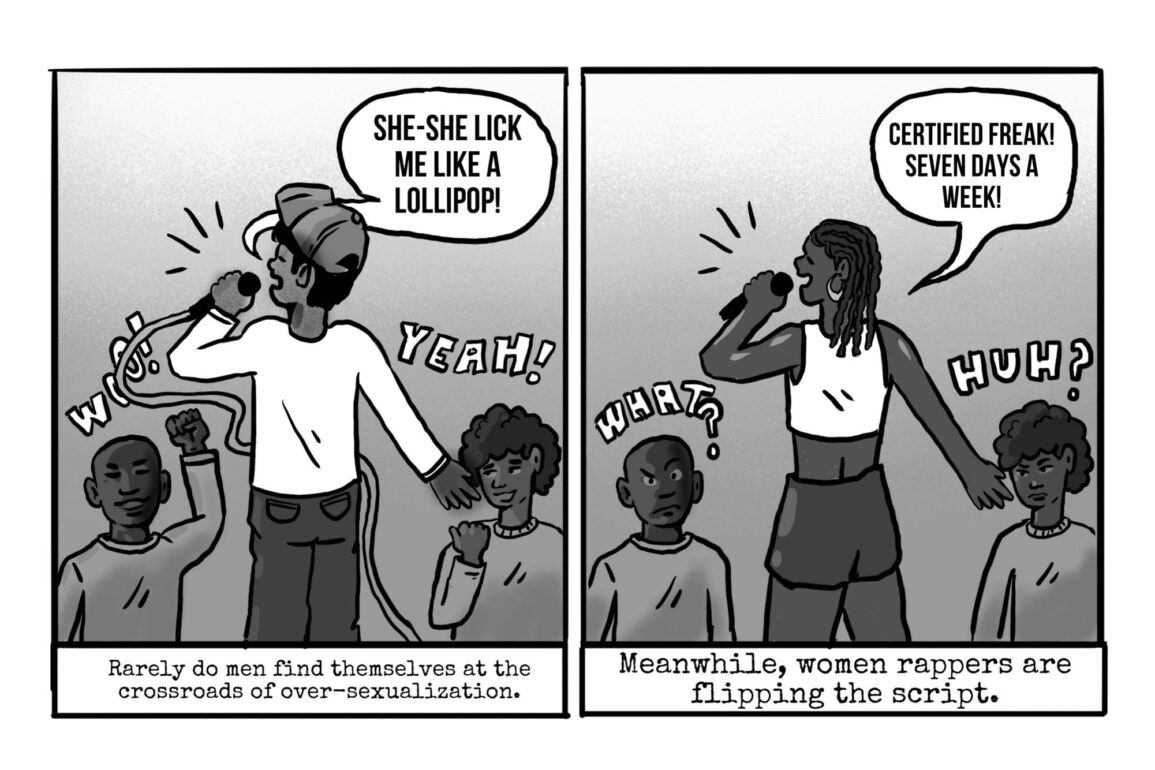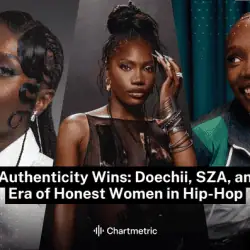
HIP-HOP ISSUE
Kennedy Person, also known by her rap name KYN, feels like there can be two lanes of over-sexualization or pressure to be categorized. This criticism goes deep into gender roles that women held in the past and how women are viewed in society today.
These two paths can be concreted by the fact that there aren’t many women to look up to as an example. According to a survey on gender distribution, women only take up 13.4% of popular songs in the hip-hop genre. Not only that, but there is not much information for up-and-coming female artists to connect. Although not specific to music artists, Columbia does have a Coalition of Female Creators, where students of all disciplines can connect. The Coalition of Female Creators supports and brings together female-identifying students who want to share their work, need help with their work or just want to network.
Criticism affects female artists from small up-and-coming artists to the biggest stars. One specific pop culture moment that met controversy was the song “WAP” by Cardi B and Megan Thee Stallion. They flipped the script when tackling the topic of over-sexualization and spoke about women’s sexuality. Overcoming over-sexualization by men, they were still criticized for their vulgarity.
Rarely do men find themselves at this crossroads in the hip-hop industry. There are countless examples of men objectifying and using misogynistic language to describe their encounters with women.
Jaeya Bayani, a Columbia rapper and popper spoke about this double standard. “…it’s so easy to compare yourself with men constantly being critical of you and men constantly criticizing other women and putting them on blast for things that if they did, they wouldn’t be put on blast for.”
So determined to fit women in a box, whatever action a woman takes in her rap/hip-hop career, the industry is determined to undermine her and her music. Like if a woman dresses “too masculine” because she doesn’t want to be hyper-sexualized or if she embraces her femininity and sexuality she is seen as a “sellout” or countless other awful names labeled on women.
There is also the lens of intersectionality that women want to advocate for, like Bayani, who is a queer Filipina rapper. She got involved in fighting for not only women in the hip-hop scene but also other parts of her identity that have a community behind them.
Even if a woman doesn’t want her gender to be a big part of her image, it is hard for female artists to solely focus on the music and lyrics themselves. Societal barriers make it nearly impossible for women not to think about their identity as a woman.
Where there is a struggle, there is also a fight for space in the industry. Person says she feels like the “underdog”, but likes the challenge. Some women see this grave disparity and demand their voices be heard. Whether it is behind the music like Slyvia Robinson, who co-founded and was the former CEO of Sugar Hill Records; or teachers of the new wave of hip-hop like Amina Norman-Hawkins who is a founder of the Hip-Hop Studies minor here at Columbia.
Music is about self-expression and putting a restriction on that just because you are a woman can greatly affect not only women today but the impressionable youth. It is vital to inspire the next generation and teach that women belong in the hip-hop genre, as well as the music industry as a whole.
Resumen en español
Columna: Ahora más que nunca, las mujeres se están estableciendo en cada aspecto de la industria del entretenimiento. En la industria del hip hop, las raperas desafían y rompen los convencionalismos y limitaciones a paso seguro.
Las raperas—las establecidas y las que recién se inician—están afectadas por la sexualización a las que son objeto y a la exigente crítica. Raramente se ve que los hombres atraviesen por situaciones similares. Muy por el contrario: existen suficientes ejemplos de raperos que utilizan un lenguaje misógino para describir sus encuentros con mujeres.
Aunque una mujer artista desea que su género no sea lo más importante de su imagen, es difícil enfocarse solamente en la música debido a las barreras sociales que hacen casi imposible que una mujer deje de lado su identidad como tal.
En la música, lo más importante es la autoexpresión. Necesitamos inspirar a las generaciones futuras demostrando que las mujeres tienen su lugar en el género del hip hop.
Related
This post was originally published on this site be sure to check out more of their content.








